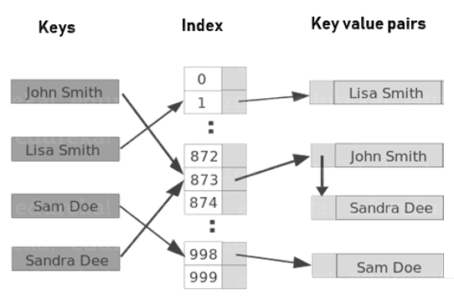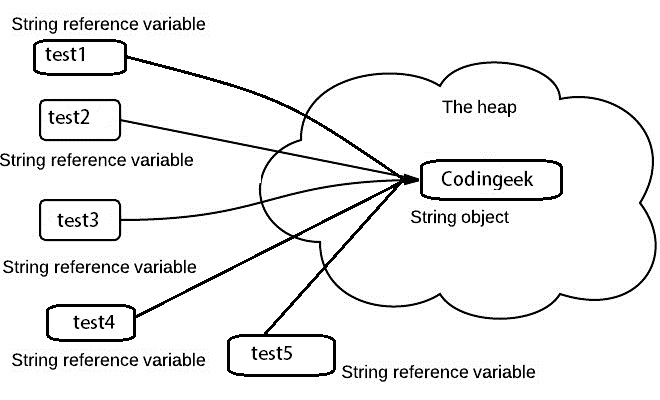What Is Immutable Strings and How It Functions
In the world of shows, comprehending the idea of immutable strings is extremely important for developing durable and safe and secure applications. Immutable strings refer to strings that can not be changed after they are produced, ensuring information honesty and predictability within the code.
The Basics of Unalterable Strings
Unalterable strings, as a fundamental concept in programming, are character series that can not be altered as soon as they are created. This indicates that once a string is designated a value, that value can not be altered. In languages like Python and Java, strings are unalterable items, resulting in various effects in terms of memory administration and data integrity.
One of the key benefits of immutable strings is that they provide a complacency in information manipulation. Because the web content of an unalterable string can not be changed, it ensures that the initial information stays undamaged, reducing the danger of unexpected modifications during program implementation (Why are strings immutable in Java?). This property likewise simplifies debugging processes, as designers can trust that when a string is specified, its worth will certainly not be accidentally altered
When a new string is developed based on an existing one, rather than changing the original string, the brand-new value is stored individually. Generally, comprehending the fundamentals of immutable strings is vital for mastering shows principles and optimizing code effectiveness.
Advantages of Immutable Strings
Structure upon the safety and security and performance benefits of immutable strings, their advantages expand to enhancing code dependability and streamlining concurrent programming tasks. By being immutable, strings can not be changed after creation, which eliminates the threat of unplanned changes in the information they store. This fundamental immutability guarantees that as soon as a string is created, its value continues to be consistent throughout the program's execution, minimizing the opportunities of pests triggered by unforeseen alterations.
Additionally, immutable strings contribute to code integrity by making it less complicated to reason about the state of a program. Considering that strings can not be altered, designers can rely on that a string will certainly constantly hold the same value, streamlining debugging and upkeep initiatives. This predictability results in much more reliable and secure codebases.

Application in Programs Languages
Within different programs languages, the incorporation of unalterable strings is an essential element that affects just how data is managed and adjusted within code frameworks. The implementation of unalterable strings differs throughout various programs languages, with each language offering its own systems to support this idea.

On the other hand, languages like C and C++ do not have built-in support for unalterable strings. Designers in these languages must manually carry out immutability by enforcing regulations within their code to avoid direct alterations to string objects.
Ideal Practices for Collaborating With Immutable Strings
When dealing with unalterable strings in programs languages like Java and Python, adhering to finest practices guarantees safe and secure and efficient information manipulation. Among the vital best methods is to utilize StringBuilder or StringBuffer as opposed to directly controling strings, specifically when managing extensive concatenation procedures. These courses provide mutable alternatives for string manipulation, aiding to prevent unneeded memory allowances and boosting performance.
Another finest technique is to use string interpolation or format operates offered by the language as opposed to manual concatenation. This not just boosts readability yet additionally help in preventing typical challenges such as unintended string modifications. In addition, when collaborating with delicate data such as passwords or API tricks, it is crucial to avoid storing them as simple message in immutable strings. Making use of secure storage devices like char selections or specialized collections for handling sensitive info aids reduce safety and security dangers connected with immutable strings.
Real-world Applications and Instances
Discovering useful implementations of unalterable strings in numerous sectors exposes their significant effect on data stability and system dependability. In the healthcare market, unalterable strings play a crucial duty in making certain the safety and confidentiality of patient data. By avoiding unapproved alterations to sensitive information such as clinical documents and prescriptions, unalterable strings assist preserve compliance with stringent personal privacy guidelines like HIPAA.
Economic organizations additionally take advantage of the immutable nature of strings to boost the security of client information and purchase records. Immutable strings aid stop fraudulence and unapproved changes to financial info, giving a durable defense against cyber risks and making sure the depend on and self-confidence of customers.

Final Thought
Finally, immutable strings are taken care of and unchangeable series of characters that offer advantages such as string safety and security and boosted performance in programs. They are implemented in various programming languages to make sure data integrity and security. Best practices for collaborating with unalterable strings include avoiding direct adjustments and using techniques that return brand-new string items. Real-world applications important site of unalterable strings consist of data file encryption, caching, and string manipulation jobs.
Unalterable strings refer to strings that can not be changed after they are created, making sure data integrity and predictability within the code. When a new string is produced based on an existing one, instead than changing the initial string, the brand-new worth is kept individually.In languages like Java and Python, strings are immutable by default, indicating that once a string item is developed, its worth can not be changed - Why are strings immutable in Java?. Ideal techniques for functioning with unalterable strings include staying clear of direct alterations and utilizing methods that return brand-new string objects. Real-world applications of immutable strings include data security, caching, and string adjustment tasks